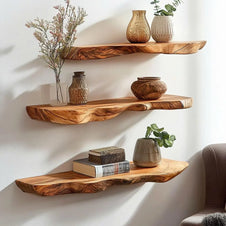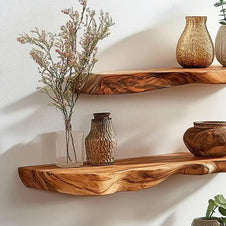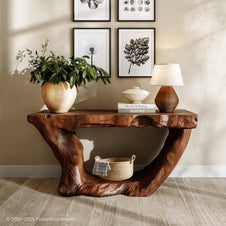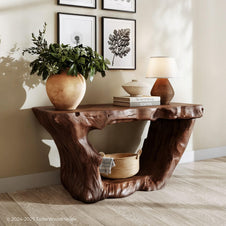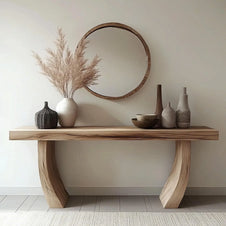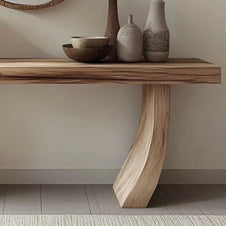Learn how to put in a corner shelf with ease—on walls, in showers, or even inside kitchen cabinets. This 2000-word DIY guide covers every surface and tip.
Why Corner Shelves Deserve More Attention
A well-placed corner shelf can do more than just hold a plant or a candle. It’s a statement. It brings structure to unused space, balances out empty walls, and adds dimension without clutter. Learning how to put in a corner shelf transforms odd corners into purposeful design features. Whether you’re mounting in drywall, tile, or even tucking one into a tricky cabinet, this guide will walk you through each method.
Tools and Materials You'll Need
Before we dive into the techniques of how to put in a corner shelf, gather your supplies:
-
Drill and bits (or adhesive if you’re going no-drill)
-
Wall anchors or toggle bolts
-
Stud finder
-
Measuring tape and pencil
-
Level
-
Corner shelf (floating, L-bracketed, tension-mounted, or suction-based)
-
Optional: adhesive strips, tile-safe sealant, painter’s tape
Having the right tools is the first secret to making your shelf sturdy and safe.
How to Put in a Corner Shelf – Wall-Mounted Styles
Let’s start with the most common way—mounting a shelf to a drywall or plaster wall.
-
Locate your studs using a stud finder. If you can't hit a stud, you'll need anchors rated for your shelf weight.
-
Mark your placement. Use a level to draw straight lines from the corner out on each wall—typically 6–12 inches depending on shelf width.
-
Pre-drill holes through the bracket holes (floating or L-type).
-
Install anchors or screw directly into studs, depending on your wall.
-
Attach your shelf—tighten brackets or slide your shelf into floating rods.
Be sure to test stability by applying gradual pressure or placing lightweight objects first. This ensures the anchors or screws are set securely. For heavier shelves, add a center support bracket or crossbar if your design allows. When done correctly, this method will let you mount not only decorative shelves, but also storage-heavy setups like book displays or dish holders.
 You now know how to put in a corner shelf securely on a regular wall!
You now know how to put in a corner shelf securely on a regular wall!
How to Put in a Corner Shelf – Freestanding or Ladder Style
Some corners don’t allow drilling, or maybe you want flexibility. That’s where freestanding corner units or ladder shelves shine.
-
Choose a shelf with triangular base design for true corner fitting.
-
Place flat on flooring—use a level to ensure stability.
-
Anchor to wall optionally using small anti-tip brackets.
Ladder shelves, which lean against the wall, provide vertical storage without permanent changes. If you want to enhance stability further, use a command strip or strap behind the top rung to anchor lightly. These shelves are perfect for renters or those not ready to commit to a drill—but you’re still learning how to put in a corner shelf that lasts.
How to Put in a Corner Shelf in a Shower or Tile Wall
If you’ve seen those sleek ceramic or stainless steel shelves inside showers—yes, those are corner shelves too.
-
Clean the tile thoroughly to remove soap and oil.
-
Mark your shelf height—typically at chest or shoulder level.
-
Apply waterproof construction adhesive to the shelf’s back.
-
Press into the corner and support it with painter’s tape while it cures.
- For tile systems like Schluter: follow their bracketed install instructions.
When learning how to put in a corner shelf on tile, remember: waterproofing is everything. Add a clear silicone bead around the shelf's base for extra sealing. Give the adhesive a full 24 hours to cure before placing items.
How to Put a Shelf in a Corner Kitchen Cabinet
Let’s not forget the hidden corners—like the ones inside cabinets. Here’s how to put a shelf in a corner kitchen cabinet without losing your mind:
-
Measure diagonals to know how deep the blind corner goes.
-
Use tension rods and boards if you want a removable setup.
-
Or install internal brackets for a permanent shelf using short screws.
-
Use tiered organizers to maximize vertical space.
For L-shaped or blind corner cabinets, custom-fit shelving works best. You can cut plywood to size and place it atop mounted rails or cleats. Use lightweight, food-safe finishes if storing dry goods or spices. Lazy Susans or pull-out trays are great options when depth makes access difficult. This is how to put in a corner shelf where visibility is low, but functionality is high. It turns dead space into usable storage and gives your kitchen a smart edge. Some corners don’t allow drilling, or maybe you want flexibility. That’s where freestanding corner units or ladder shelves shine.
-
Choose a shelf with triangular base design for true corner fitting.
-
Place flat on flooring—use a level to ensure stability.
-
Anchor to wall optionally using small anti-tip brackets.

These shelves are perfect for renters or those not ready to commit to a drill—but you’re still learning how to put in a corner shelf that lasts.
How to Put in a Corner Shelf in a Shower or Tile Wall
If you’ve seen those sleek ceramic or stainless steel shelves inside showers—yes, those are corner shelves too.
-
Clean the tile thoroughly to remove soap and oil.
-
Mark your shelf height—typically at chest or shoulder level.
-
Apply waterproof construction adhesive to the shelf’s back.
-
Press into the corner and support it with painter’s tape while it cures.
-
For tile systems like Schluter: follow their bracketed install instructions.
When learning how to put in a corner shelf on tile, remember: waterproofing is everything.
How to Put a Shelf in a Corner Kitchen Cabinet
Let’s not forget the hidden corners—like the ones inside cabinets. Here’s how to put a shelf in a corner kitchen cabinet without losing your mind:
-
Measure diagonals to know how deep the blind corner goes.
-
Use tension rods and boards if you want a removable setup.
-
Or install internal brackets for a permanent shelf using short screws.
-
Use tiered organizers to maximize vertical space.

This is how to put in a corner shelf where visibility is low, but functionality is high.
Mistakes to Avoid When Installing a Corner Shelf
-
Skipping the level check—no one likes a slanted shelf
-
Choosing the wrong anchors—especially in plaster or tiled walls
-
Not accounting for wall obstructions like pipes or wires
-
Forgetting weight limits—especially with floating styles
Understanding how to put in a corner shelf also means knowing what not to do.
Inspiration: Creative Corner Shelf Ideas by Room
-
Living Room: Layered wood shelves with framed art and books
-
Bathroom: Minimalist marble shelves with rolled towels and oils
-
Bedroom: Floating triangle shelves beside the headboard
-
Kitchen: Rustic wood slabs in upper wall corners
Now that you’ve mastered how to put in a corner shelf, you can dream up endless styling options.
How to Put in a Corner Shelf With No Drill or Stud Access
Sometimes, drilling isn’t an option. No problem—here’s what you can do:
-
Use adhesive strips rated for at least 10–15 pounds
-
Install tension-mounted corner shelves with no wall damage
-
Try suction-based shelves in tiled bathrooms
Even in a rental, you can still learn how to put in a corner shelf without tools.
Safety Tips and Load-Bearing Advice
A shelf is only as good as what it can hold:
-
Keep heavier items closer to the wall to reduce tipping
-
Use wall studs whenever possible for max support
-
Always test the shelf before loading valuables
These aren’t just tips—they’re essential parts of mastering how to put in a corner shelf safely.
Finishing Touches – Painting, Sealing, and Styling
Once your shelf is up:
-
Caulk or seal joints for water-prone areas
-
Paint brackets to match the wall for a cleaner look
-
Style it in thirds: tall, medium, and low elements for visual balance
 After all, learning how to put in a corner shelf should result in something beautiful.
After all, learning how to put in a corner shelf should result in something beautiful.
FAQs: How to Put in a Corner Shelf Without Hassle
Q: Can I install a corner shelf without drilling?
Yes! Use adhesive strips or tension poles depending on weight.
Q: How do I center a shelf in a corner?
Measure equal distance from the corner along both walls and use a level.
Q: What’s best for renters?
Tension-mounted or adhesive-mounted options are your go-to.
Q: What if my wall is uneven?
Shim behind brackets and check with a level.
That’s the real-world know-how of how to put in a corner shelf—beyond the packaging instructions.
For step-by-step instructions on shower shelf installation, see this Family Handyman guide.
Conclusion: A Small Shelf, A Big Difference
Learning how to put in a corner shelf doesn’t require a workshop or a renovation crew. With a few tools and the right technique, you can transform overlooked corners into useful, stylish spots. Whether it’s a modern floating shelf, a rustic cabinet insert, or a shower niche—one small shelf can truly elevate your space. If you've been wondering how to put in a corner shelf, the answer is simple: start measuring, start drilling—or don’t—and just start.
And if you’re dealing with a cabinet space, now you know how to put a shelf in a corner kitchen cabinet with ease. Happy building!

